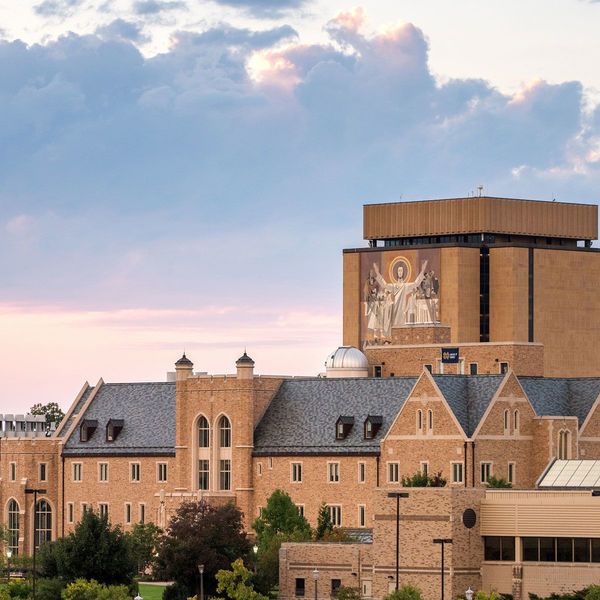The University of Notre Dame College of Science will begin offering a new minor in science and patient advocacy beginning with the Fall 2021 semester.

“The minor aligns well with the mission of the college, and enhances student opportunities to improve patients’ lives in their future careers,” said Michael Hildreth, interim dean of the College of Science.The program will provide undergraduate students with the tools and knowledge to meet the challenge of advocating for patient groups in different types of diseases, said Shaun Lee, the Monahan Family Associate Professor of Rare and Neglected Diseases in the Department of Biological Sciences, who co-directs the minor with Barbara Calhoun, outreach coordinator for the Boler-Parseghian Center for Rare and Neglected Diseases and adjunct assistant professor in the Department of Biological Sciences.
The program is the result of positive feedback from classes offered in rare and neglected diseases, both from a patient and molecular standpoint. Students will work closely with patient groups, as well as researchers, clinicians, and pharmaceutical companies to ultimately provide positive patient outcomes and increase awareness of diseases, especially the kinds of rare and neglected diseases for which there is a large need for better knowledge and awareness.
“I have been truly inspired by the many undergraduate students who have already become 'patient advocates' during their education and training at Notre Dame,” Lee said. “These students have not only learned various key aspects of a particular disease, but they have also personally interacted with patient families or communities of disease in order to become better advocates of awareness of a given disease.
“We wanted to give these students an opportunity to be recognized for their hard work, and also to provide a more formal framework for them to be well-rounded experts and advocates of a particular disease.”
Katherine Bockholt ’21, a neuroscience and behavior major with a minor in compassionate care in medicine who plans to become a physician, took the two courses this academic year, but because she is graduating, will not be able to add the minor. She enjoyed the individualized, research-based approach of the courses.
“It’s so important for pre-med students to understand and prioritize this side of medicine, though so many do not gain this type of experience until much later in their paths toward medicine,” she said. “The patient advocacy minor is a fantastic way to not only increase awareness of the importance of patient advocacy, but also for students to gain understanding of how to conduct research and how to interact with a different (but incredibly relevant) aspect of medicine.”
Adviti Bali, a biochemistry major who will graduate in December 2022, had been working in the research laboratory of Kasturi Haldar, the Rev. Julius A. Nieuwland, C.S.C., Professor in the Department of Biological Sciences and the Parsons-Quinn Director in the Boler-Parseghian Center for Rare and Neglected Diseases. Haldar encouraged her to pursue the minor when it is offered in the fall, and she liked the idea. Bali plans to earn a doctoral degree and work in the pharmaceutical industry in the future, with hopes to work for a company that is willing to develop therapies for rare diseases. The combination of laboratory work and patient contact is essential for her goals.
“Though I want to work in the lab all day, I also want some human interaction with rare disease patients because that provides motivation,” she said. “I feel like it could be easy to get burned out in a lab, but when you see people suffering, you are more driven to make a difference.”
Bailey Perczak, a rising senior majoring in neuroscience and behavior, agrees, and has decided to pursue the minor instead of a minor in poverty studies, because of the medical aspect. “This minor allows us to learn how to be better physicians for patients who oftentimes may feel like they fall through the cracks,” she said.
The minor will consist of two gateway courses, a community engagement portion, and a capstone project, Calhoun said.
“The mission of the Interdisciplinary minor program in science and patient advocacy is to provide undergraduate students with critical skills and understanding of the multifaceted challenges needed to advocate effectively for rare disease patients,” she said. “Students need to understand the genetic, molecular and clinical basis of disease in order to positively impact patient health outcomes.”
Originally published by at science.nd.edu on June 02, 2021.